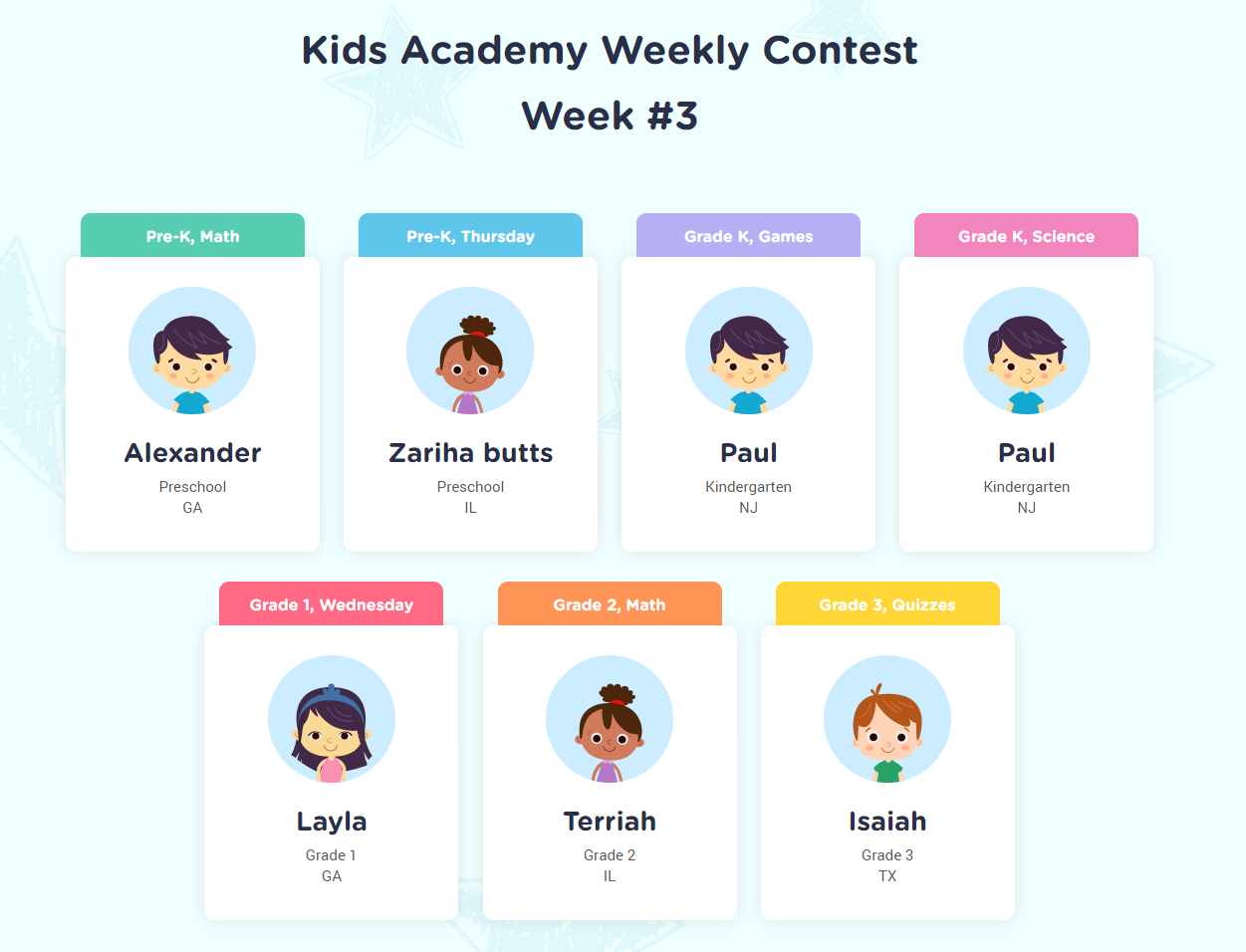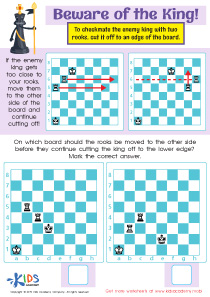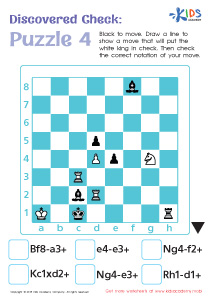Easy Chess Worksheets for Ages 6-9
6 filtered results
-
From - To
Introduce your young learner to the exciting world of chess with our "Easy Chess Worksheets for Ages 6-9". Designed specifically for beginners, these engaging activities will help kids grasp the basics of chess, including piece movements, game rules, and strategic thinking. Perfect for both classroom and home use, each worksheet simplifies complex concepts into fun, manageable tasks that inspire confidence and curiosity. Watch your child's critical thinking and problem-solving skills grow as they embark on this stimulating intellectual adventure. Our expertly crafted materials make learning chess enjoyable and accessible, setting a solid foundation for young minds to master this timeless game.
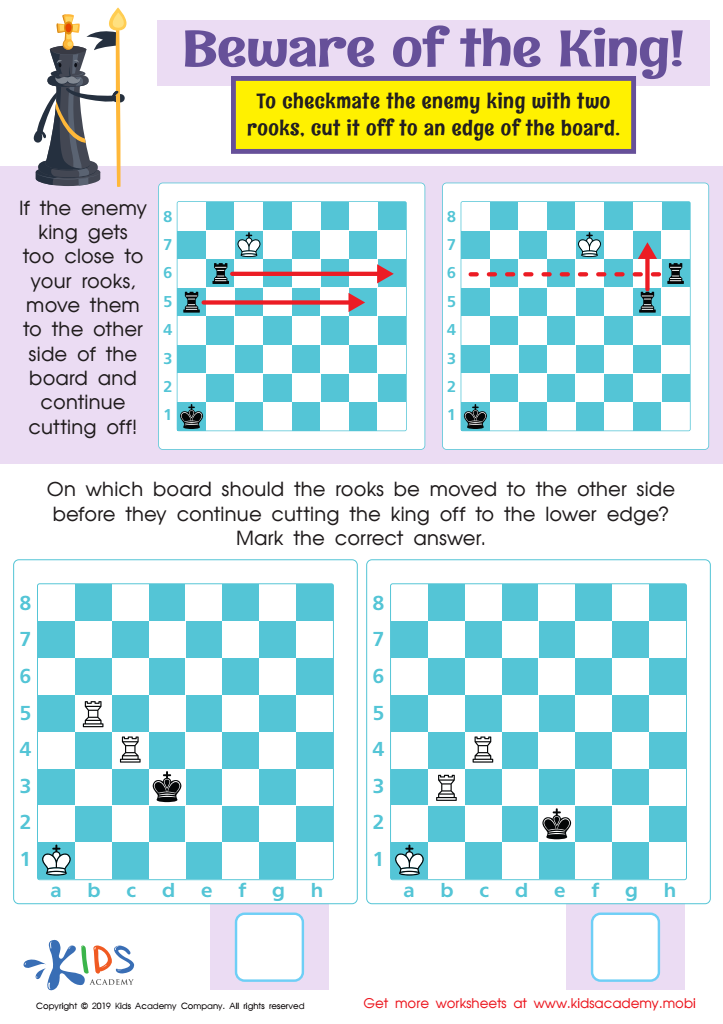

Beware of the King! Worksheet
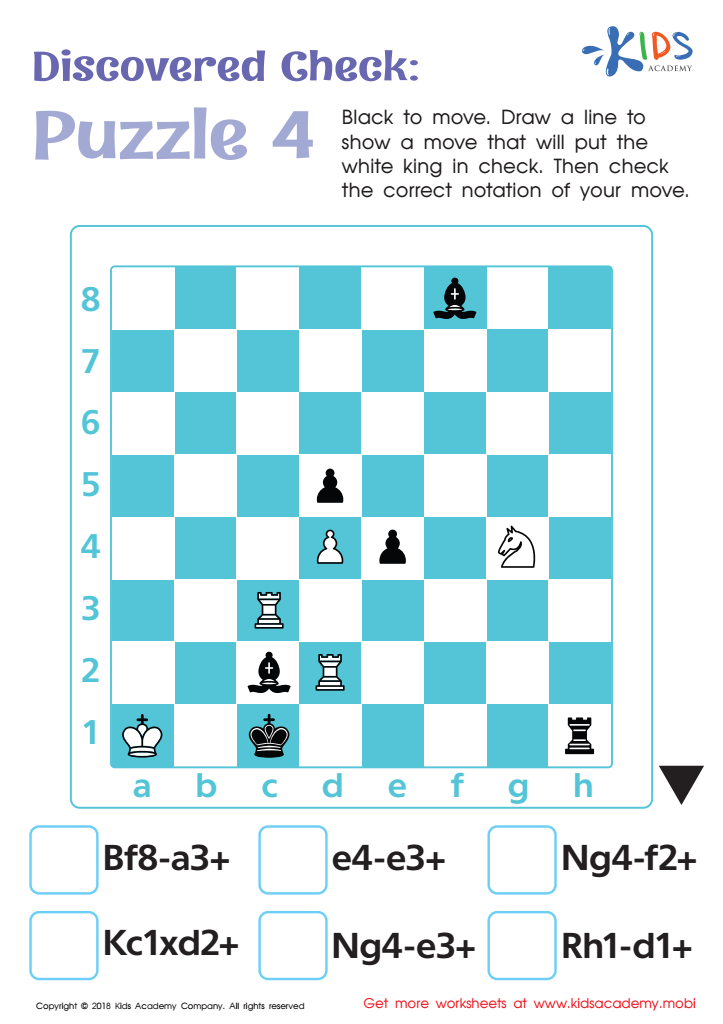

Discovered Check: Puzzle 4 Worksheet


Discovered Check: Puzzle 2 Worksheet
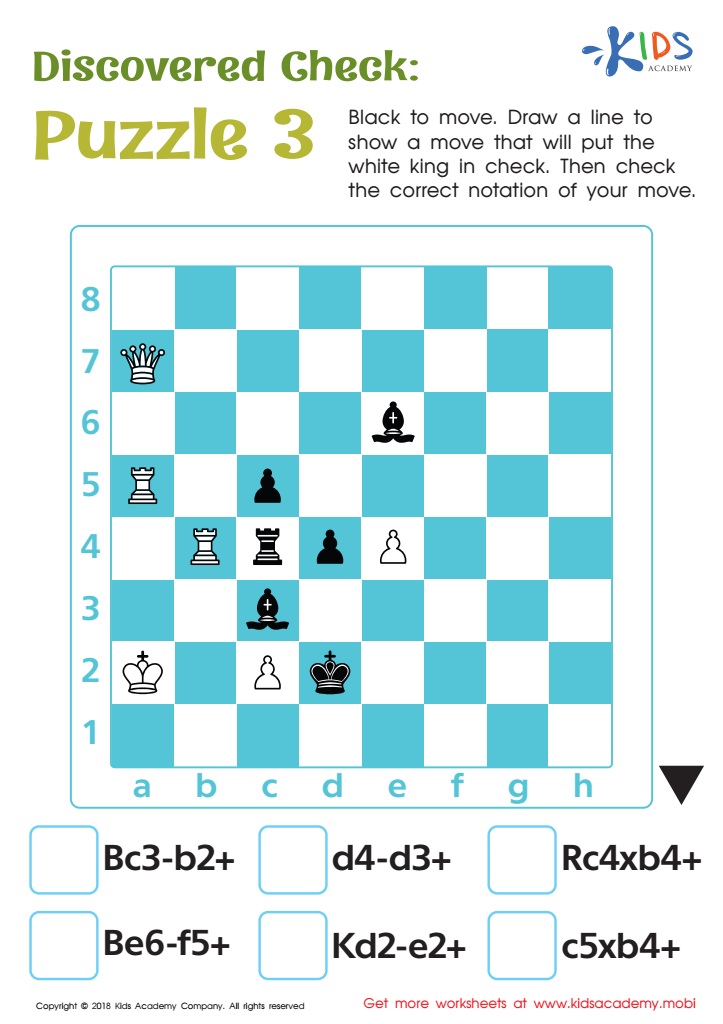

Discovered Check: Puzzle 3 Worksheet
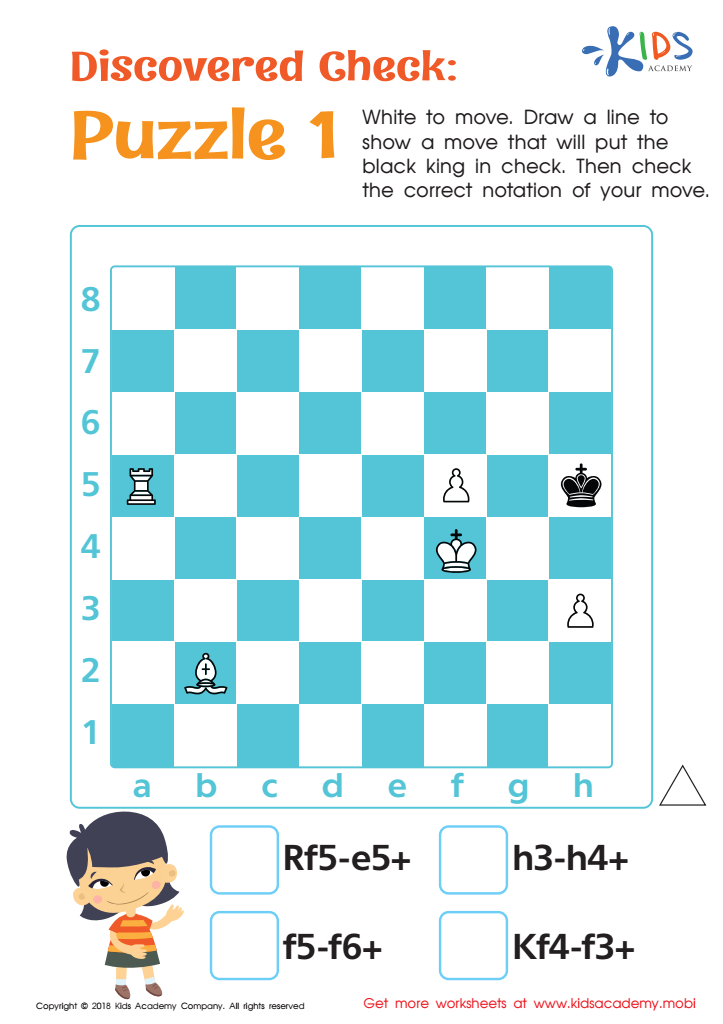

Discovered Check: Puzzle 1 Worksheet
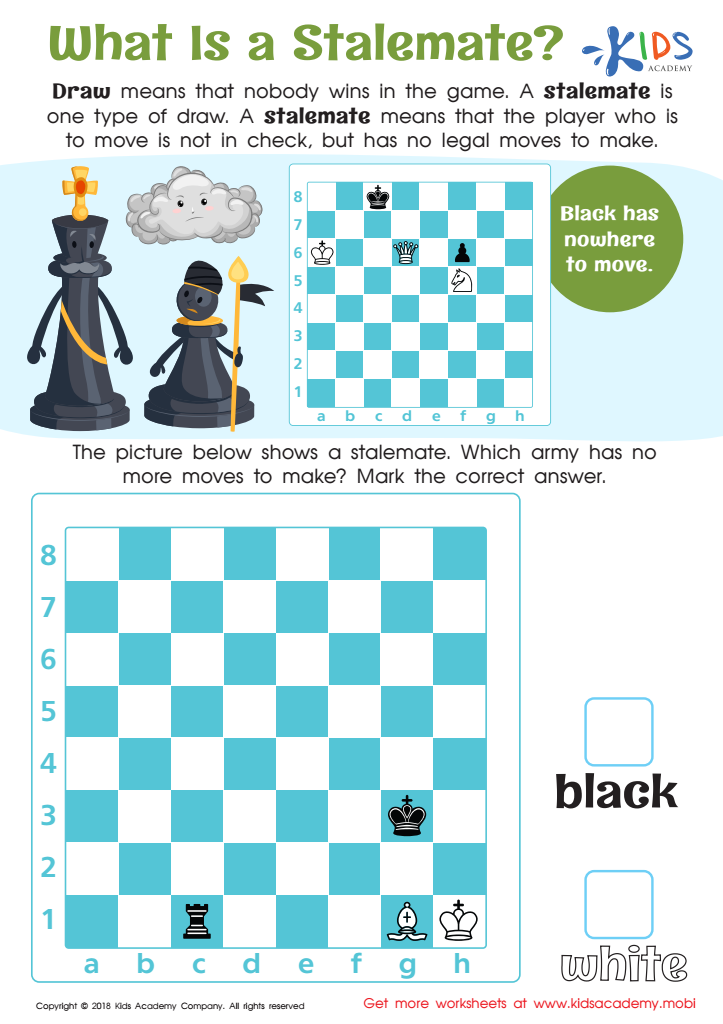

What Is a Stalemate? Worksheet
Easy Chess for Ages 6-9 offers a fantastic way for young children to develop critical cognitive and social skills while having fun. Engaging with this age-appropriate version of the classic game helps kids develop essential abilities such as problem-solving, strategic thinking, and improved concentration. As they think several moves ahead, they learn to plan and execute strategies effectively, a skill that is transferable to many academic and life scenarios.
Moreover, playing chess promotes patience and perseverance, as youngsters learn to win graciously and deal with losses in a constructive manner. These emotional resilience skills play a crucial role in their overall development, aiding them in coping with various challenges.
Socially, Easy Chess introduces children to healthy competitive interaction and fosters peer relationships. Whether they are playing with family members or classmates, children learn important communication skills and mutual respect.
Bringing Easy Chess into a child’s routine doesn't mean more screen time; instead, it offers an engaging and educational alternative to videogames and digital activities. The game's simplicity ensures that children can grasp the fundamentals without feeling overwhelmed, allowing for a gradual increase in difficulty as their understanding grows. Investing in Easy Chess creates a rich, skill-enhancing experience that benefits children well beyond their early years.

 Assign to My Students
Assign to My Students






